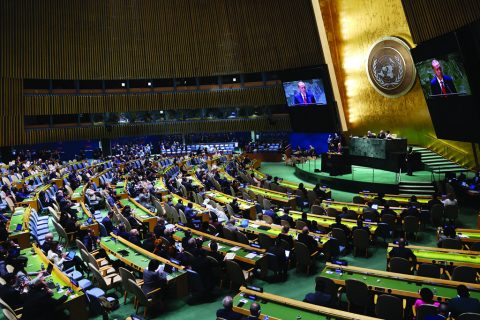
Klaus Jurgens
There is no explanation about the author.
-
Opinion
Re-Defining Türkiye’s International Relations: Two Decades of 360° Foreign...
Analyzing modern Türkiye’s foreign policy is the perfect case study of how, over time, a nation-state can completely restructure its approach to engaging with the outside world. Yet this analysis does not aim to propose an extended or complete listing of individual countries’ relations; on the contrary, it basically tries to suggest what was the catalyst when measurable change occurred for the first time. In brief, Türkiye progressed from promoting splendid isolation during the past millennium to becoming a fully integrated and often trend-setting international actor in just over two decades. Hence, determining the actual catalyst for change, which according to the author is not just an election victory but also a much more profound paradigm shift in elected officials’ attitudes towards the wider world, is this contribution’s major aim. After discussing the analytical differences between international relations on the one hand and foreign policies on the other and focusing on the electorate as a key contributor and beneficiary of and from proactive foreign policies, the piece proposes a number of key examples to come up with a tangible way to measure foreign policy success. At the same time, the question is put forward in which context there might be even more to expect from Ankara and its constant desire to further expand on an already impressively positive global image. Whether or not foreign policies are an integral part of Türkiye’s 100-year strategy and thus become a focus of Türkiye the Brand serves as the concluding reflection.
